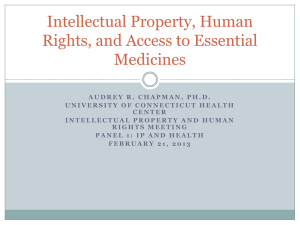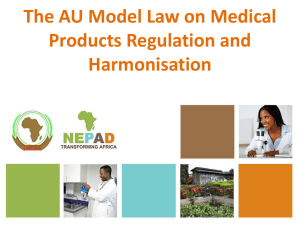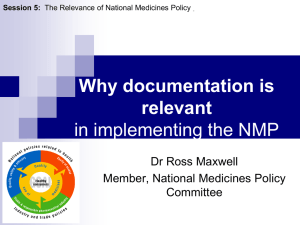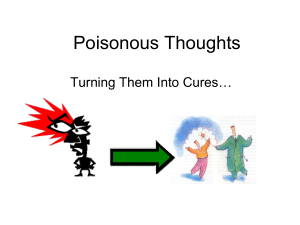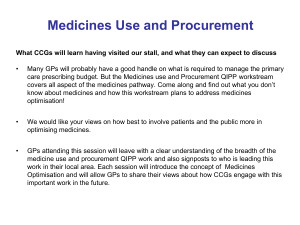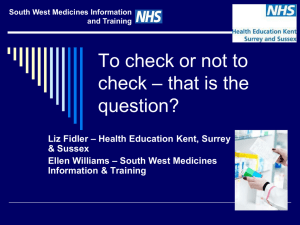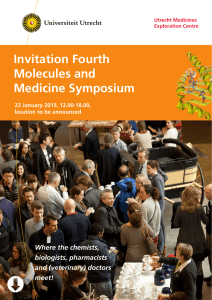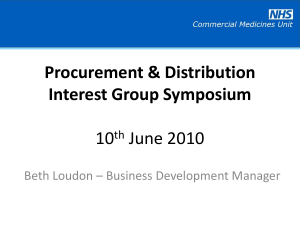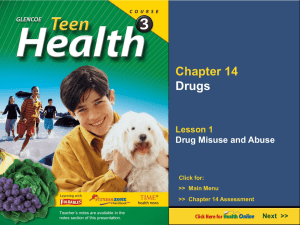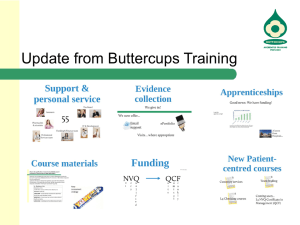t-Hoen - Program on Information Justice and Intellectual Property
advertisement
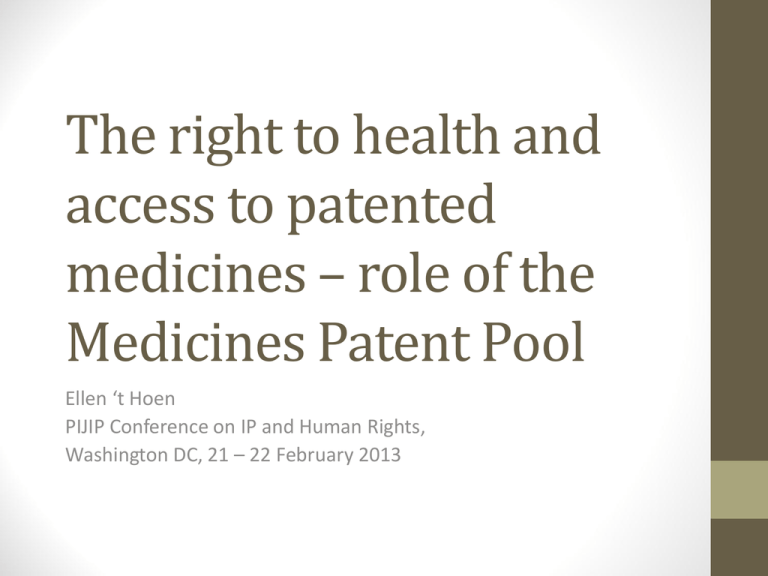
The right to health and access to patented medicines – role of the Medicines Patent Pool Ellen ‘t Hoen PIJIP Conference on IP and Human Rights, Washington DC, 21 – 22 February 2013 Human Rights and Access to Medicines • Access to safe and effective medicines are an essential component of the fulfillment of the right to health • Access to medicines requires state action • • • • Selection of essential medicines Quality assurance Procurement and supply Rational use • The development and production of medicines is largely left to the commercial private sector • Leads to rationing or non availability if medicines are priced out of reach of people’s/communities’ ability to pay or not developed at all. Trade agreements and ATM • ‘77 WHO Essential Medicines Concept – selection and provision core function of government • Rooted in human rights principles (‘78 Alma Ata ‘Health for All’) • ‘95 WTO TRIPS agreements have taken away policy options for governments • Pre-TRIPS Andean region excluded patents for medicines listed on their national essential medicines lists • At the time the Uruguay Round launched in 1986, 49 of the 98 members of the Paris Convention excluded pharmaceutical products from patent protection, 10 excluded pharmaceutical processes and 22 excluded chemical processes • Late nineties HIV/AIDS access crisis provoked international action • 2001 Doha Declaration effort to rebalance rights and obligations Right to Health in the court “The richness of practice is also critically relevant for understanding the concept and reach of human rights” Amarya Sen Enforcement of ATM as part of RTH • Hogerzeil et al Identified 73 cases from 12 LMIC countries (9 Latin America, India, Nigeria, South Africa) • 59 cases access to essential medicines as part of the fulfillment of the right to health was enforced through the courts • Majority of cases HIV/AIDS related Source: Hogerzeil etal.,Is access to essential medicines as part of the fulfilment of the right to health enforceable through the courts?, Lancet 2006, 368:305-11 47 Human Rights Guidelines for Pharmaceutical Companies in Relation to Access to Medicines • 2008 the UN Special Rapporteur on the right to health, submitted to the United Nations General Assembly the “Human Rights Guidelines for Pharmaceutical Companies in relation to Access to Medicines” They include: • responsibilities for transparency, management, monitoring and accountability, pricing, and ethical marketing, and against lobbying for more protection in intellectual property laws, applying for patents for trivial modifications of existing medicines, inappropriate drug promotion, and excessive pricing. • Guidelines 26–32 address patents and licensing, including the vital role of commercial and noncommercial voluntary licences. Source: http://www.plosmedicine.org/article/info%3Adoi%2F10.1371%2Fjournal.pme d.1000330 The Medicines Patent Pool 7 UN Framework of the Pool • 2008 UN Special rapporteur Health and Human Rights guideline on licensing • 2008 WHO Global Strategy and Plan of Action on Public Health Innovation and Intellectual Property: ..examine the feasibility of voluntary patent pools of upstream and downstream technologies to promote innovation of and access to health products and medical devices; • 2010 UNITAID – a WHO hosted multilateral financing mechanism – following a feasibility study decided to establish the Medicines Patent Pool • United Nations General Assembly Political Declaration on HIV/AIDS 2011: “Voluntary use, where appropriate, of … patent pools benefiting all developing countries, including through entities such as the Medicines Patent Pool, [is encouraged] to help reduce treatment costs and encourage development of new HIV treatment formulations, including HIV medicines and point-of-care diagnostics, in particular for children.” 2012 WHO CEWG: The public health impact was potentially high • MPP integral part of WHO’s five year HIV/AIDS strategy • WHO CEWG recognised MPP as a promising mechanism for access and innovation Patents on HIV Medicines Medicines Patent Pool Advantages • Negotiates licenses from a public health perspective • Transparent and predictable • Active engagement with generics to ensure uptake • Works on development of recommended formulations • Quality assurance important focus (WHOPQ) • UNITAID strategic partner in creating market limitations • Participation by companies voluntary • T&C result of negotiations – no power to force e.g. country scope • Limited to HIV Medicines Patent Pool Advantages • Negotiates licenses from a public health perspective • Transparent and predictable • Active engagement with generics to ensure uptake • Works on development of recommended formulations • Quality assurance important focus (WHOPQ) • UNITAID strategic partner in creating market Limitations • Participation by companies voluntary • T&C result of negotiations – no power to force e.g. country scope • Limited to HIV In conclusion • Medicines Patent Pool an important mechanism to ensure access to HIV medicines - an essential component of the fulfillment of people’s right to health. • The Pool has some limitations. • When medicines patents holders refuse to license their patents under public health friendly terms and conditions, trade/IP/competition law and the human rights framework offer powerful tools for governments to intervene • Tools for citizens to demand government action incl through the courts or competition authorities • Refusal to license on reasonable terms • Ultimately, access to essential medicines [as a key component of the fulfilment of the right to health] depends on the willingness of governments to act. This should include exploring access friendly ways to finance R&D.
